Connect with Top Design Professors on Twitter
The field of design is a multi-faceted discipline within academia—from the arts, architecture, to cultural identity, and innovations in education and technology—design is the blueprint for human and technological evolution. Design professors lead the way for thriving economies as designers are constantly faced with tackling cultural, social, spatial and technological challenges. Design professors educate future designers to understand environmental, human and social needs by applying creative strategies to break boundaries and develop resourceful solutions.
The list below contains highly connected professors representing many leading schools of design. It so happens that several of the professors near the top of the list specialize in architecture, however as you move down the list you will find the broader field of design represented by professors specializing in areas like educational product design, graphic design, human-computer interaction, illustration, and information systems. While their work and research may delight the senses and inspire minds, they also strive to shift the paradigm of what might be considered aesthetic and sustainable design, and encourage us to open our minds to understand the complexity of the world and build a better one.
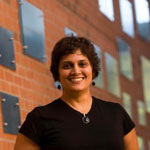
Anila Quayyum Agha serves as an Associate Professor of Foundation Studies, Drawing and Illustration within the Herron School of Art & Design at Indiana University. She is the recipient of various awards, grants, the Efroymson Arts Fellowship, and the Glenn W. Irwin, Jr., M.D. Research Scholar Award (2016). Professor Agha uses mixed media (textiles, sculpture) when designing her artwork which focuses on global politics and culture, and social and gender roles. Most recently, the Cincinnati Art Museum acquired one of Agha’s sculptural installations which explores “crossing boundaries.”
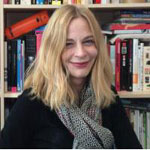
At North Carolina State University’s College of Design, Helen Armstrong is an Associate Professor of Graphic Design. Her research interests include graphic design theory, computation, inclusive design, and participatory design. She is the author of Digital Design Theory: Readings from the Field (among other publications), which further explores the connection between design and computation. In addition, Professor Armstrong serves on the editorial board of Design and Culture and her design work has received numerous awards.

At Rhode Island School of Design’s Industrial Design department, Charlie Cannon serves as an Associate Professor. His research focus is on sustainable design, urbanism, education, social change and innovation, and he is the co-principal investigator for the impact of client change on marine life. Professor Cannon has also worked as a carpenter and co-founded award-winning architecture practices, and he often shares posts on Twitter about the functions of design, including “discursive design.”

At Columbia University’s Graduate School of Architecture, Planning and Preservation, Vishaan Chakrabarti serves as Associate Professor of Professional Practice, where he specializes in architectural design and urbanism. Professor Chakrabarti is also the founding Director of the Center for Urban Real Estate (CURE) at Columbia, and is recognized for his groundbreaking design efforts. Some of his publications include, NYC 2040: Housing the Next One Million New Yorkers (co-authored with Jesse M. Keenan) and A Country of Cities: A Manifesto for an Urban America.

At Harvard University’s Department of Urban Planning and Design, Professor Felipe Correa is an Associate Professor and Director of the Urban Design program. He received his Master of Architecture and Urban Design from Harvard University where he further developed his design practice, Somatic Collaborative, which focuses on the interconnection of Architecture, Urbanism and Infrastructure. Correa’s research and design work have been widely published, and include his book Beyond the City: Resource Extraction Urbanism in South America (2016). He is also the co-founder and director of the South America Project (SAP)—a research network that deals with spatial synthesis and the reshaping of the Hinterland of South America.

At the University of Pennsylvania, Winka Dubbeldam is the Miller Professor and Chair of Architecture. Professor Dubbledam is known for her cutting-edge, innovative and award-winning work, and she is the founder of the New York firm, “Archi-Tectonics.” Professor Dubbeldam is an architect who uses hybrid, sustainable materials, and her recent project includes a sustainable village in Monrovia Liberia. Her work has been widely exhibited at museums, such as the Museum of Modern Art, and her awards include, DesignIntelligence 30 Most Admired Educators 2015.

Mario Gooden is an Associate Professor of Professional Practice at Columbia University’s Graduate School of Architecture, Planning and Preservation. He is also the co-director of the Global Africa Lab—which examines how globalization shapes the African continent’s urbanism, culture, design and ecology. Professor Gooden’s publications include, UnSpoken Spaces: Inside and Outside the Boundaries of Race, Class, and Space, and Dark Space: Architecture, Representation, Black Identity—which was recognized as one of the best architecture and design books of 2016.

MIT’s Media Lab is within the School of Architecture and Planning, where Dr. César Hidalgo is an Associate Professor and Asahi Broadcast Corporation Career Development Professor. He also manages the Collective Learning group where they design tools to transform datasets into stories, or to map collective memory. Dr. Hidalgo’s research on collective learning and how to improve the collective learning of organizations has been published in various journals. He is also the author of Why Information Grows: The Evolution of Order, from Atoms to Economies (2015).
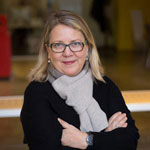
Lucinda Hitchcock is a Professor at (RISD) Rhode Island School of Design, where she is currently researching how to transform traditional graphic principles into environmental design, memorial design, and spatial narrative. Professor Hitchcock also teaches typography, conceptual design, and book production within the Graphic Design department. Her designs have received numerous awards and have been featured in AIGA 50 Books, Communication Arts and Print Magazine, and she has been included in the book Women in Graphic Design (1890-2012).

At Carnegie Mellon University, Terry Irwin is a Professor and Head of the School of Design. Professor Irwin’s area of research is in Transition Design, which urges societal transition toward a more sustainable future. She also focuses on Goethean Science and ecological design. Prior to Carnegie Mellon, Professor Irwin was one of the founders of MetaDesign, an international design firm. She often shares posts on Twitter about Carnegie Mellon University and the future of design.
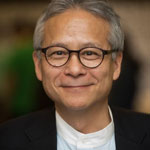
Dr. Hiroshi Ishii is the Jerome B. Wiesner Professor of Media Arts and Sciences, at the MIT Media Lab—a lab associated with the MIT School of Architecture and Planning. He is also the Associate Director of the MIT Media Lab, and founder and director of the Tangible Media Group, which focuses on his expertise in designing seamless human-computer interfaces. His extensive research and writings have been featured in DIS (Designing Interactive Systems) and Science Advances, to name a few, and he has served on numerous academic and international committees.

Dr. Scott Klemmer is the co-founder of the Design Lab at UCSD. He also serves as Professor of Cognitive Science and Computer Science & Engineering, and previously, he worked at Stanford University as Associate Professor of Computer Science. At the Design Lab he focuses on “Design at Large” to empower people to design, create and learn practical theories for design. Dr. Klemmer has appeared on TEDx San Diego, and he has received numerous awards and honorable mentions, including the Katayanagi Emerging Leadership Prize, Sloan Fellowship, and the NSF CAREER award.

In the Department of Art + Design and the School of Architecture at Northeastern University, Dr. Kristian Kloeckl is an Associate Professor. Previously, Dr. Kloeckl worked at MIT, where he was a research scientist who helped establish a lab in Singapore to develop data from Singapore’s key urban systems operators. His research expertise revolves around digital data, interaction modalities and the development of application scenarios and solutions. His work has been featured at the Museum of Modern Art in New York and the Venice Architecture Biennale, to name a few, and he has worked as a professional designer internationally.
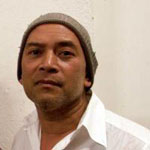
At UCLA, Willem Henri Lucas serves as Professor within the department of Design Media Arts. Professor Lucas is a Dutch designer who has won numerous book design awards in the U.S. and in the Netherlands. Professor Lucas is primarily a book designer, and his areas of specialization are focused on issues of “love, war, the human condition.” He is driven by social issues and aspires to encourage other designers to bring “humanity back” to design to help bridge communities together.
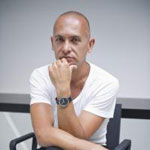
Josh Owen is a Professor and the Chair of the Industrial Design department at the Rochester Institute of Technology. He is the author of Lenses for Design, the recipient of various awards and nominations for his designs, including the International Design Award. Professor Owen is also the President of his design studio, Josh Owen LLC, and his furniture, lighting and product designs have been showcased in numerous exhibitions around the world.

Casey Reas serves as Professor within UCLA’s Design Media Arts department. He is the co-founder of “Processing,” which encourages software literacy for visual artists and designers. His work (installations, software and prints) has been featured at numerous galleries and museums, including San Francisco’s Museum of Modern Art. Professor Reas’ area of research includes examining emergence phenomena through software, and the history, theory and practice of software in visual arts.

Dr. Mitchel Resnick serves as LEGO Papert Professor of Learning Research at the MIT Media Lab. His Lifelong Kindergarten research group develops the extremely popular Scratch programming software and online community, the world’s largest coding platform for kids. The group also collaborates with the LEGO company to develop educational products. Dr. Resnick wrote both Lifelong Kindergarten, published by MIT Press in 2017, and The Official Scratch Jr Book., and was awarded the McGraw Prize in Education in 2011 and the AACE EdMedia Pioneer Award in 2013.

Jason Schupbach is the Director of the Herberger Institute for Design and the Arts at Arizona State University, where he also serves as Professor of Practice. Previously, Professor Schupbach served as the Director of Design and Creative Placemaking Programs for the National Endowment for the Arts. His work primarily focuses on the role of design and the arts in evolving and enhancing communities, economic development and urban planning.
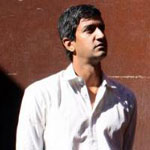
Ramesh Srinivasan serves as an Associate Professor in the Department of Information Studies and Design Media Arts at UCLA. He is also the Director of the UC Center for Global Digital Cultures. Professor Srinivasan’s research expertise is in information systems, cultural artifacts and engaging communities to become autonomous designers of their own information systems. He has appeared on TEDx, NPR, Al Jazeera, and his work has been published by CNN, Wired, The Washington Post, and The Huffington Post, to name a few.

Dr. Haoqi Zhang is the co-director of the Delta Lab, Director of the Design, Technology, and Research program, and the Allen K. and Johnnie Cordell Breed Junior Professor of Design at Northwestern University. Dr. Zhang is also an Assistant Professor of Electrical Engineering and Computer Science at Northwestern. On Twitter, Dr. Zhang posts about computational ecosystems—interweaving community and social structures to unite people. In addition, his research interests include crowdsourcing, human-computer interaction, artificial intelligence, applied machine learning, social computing and microeconomics.